In houses worldwide, you’ll find neatness personified; cutlery organised according to its purpose, colour-coded bookshelves and even seasonally-racked clothes. In many of those houses, you’ll also find a ‘messy drawer’ – a slice; a taster, perhaps – of the human brain’s capability for facilitating disorganisation. It’s a dumping ground for the miscellaneous items we can’t quite seem to find a designated home for, but at the same time, its value isn’t lost on its owners.
If all hope is lost, you try the ‘messy drawer.’ Hay-fever tablets? Try the messy drawer. Plasters, paper clips, post-it notes, sellotape or loose batteries? You know where to look.
It’s an amalgamation of the disorganised and organised mind. It’s easy to feel organised in one sense – for example, having a rough idea of what’s in the messy drawer – but it’s just as easy to resemble the chaos of its contents. While it is a comforting place to look for everything miscellaneous and lost, it’s not a sustainable mindset in the long term.
A lack of organisation scrambles your life into a messy drawer-like state and throws up a clarity-ending fog.
In other words, the more organised you are, the clearer things will become.
A highly organised life is made up of small but immensely impactful frameworks that can be implemented today. From this point, the steps to a more successful, enriching life become clearer and much easier to navigate.
Prioritise and Set Goals
When you think about organising your life and getting ahead of things, you likely think about goal setting (and rightly so). When you set clear and specific goals for the week, you follow a sense of direction necessary for high achievement and general success. Without them, daily schedules can feel disjointed and up in the air.
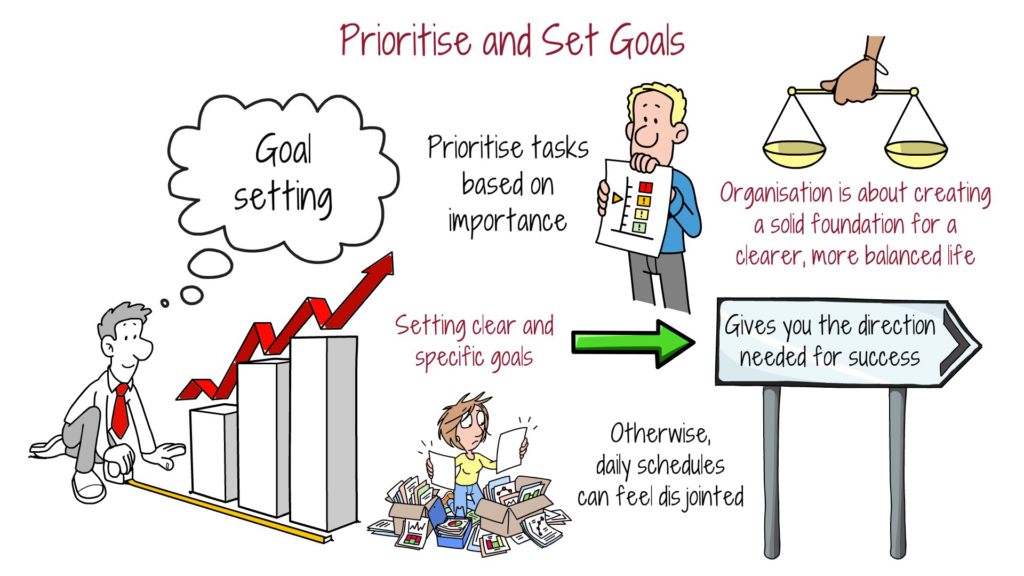
As previously mentioned, organisation is all about laying down the groundwork for a more harmonious, clear existence. When you get that out of the way, you’ll find yourself naturally steering toward fruitful opportunities and environments that push you to greater things.
It’s also useful to bear in mind which kinds of tasks are important. Prioritising tasks based on importance helps navigate the week more effectively than if you were to attempt any task at any time.
Use a Planner or Digital Tools
To feel like you’re making progress in life, it can often feel as if too many tabs are open at once. You have the maintenance of your general well-being – fitness, healthy eating and so on. Then there’s the upkeep and improvement of your social life; seeing friends or making new ones, or perhaps seeking romantic partners. All of that takes up a huge chunk of your energy, and we haven’t even discussed the energy professional and creative ventures require. All of these tabs contribute to a slower and less efficient system. They are also precisely why having a planner or using digital tools is a crucial weapon to have in your organised arsenal.
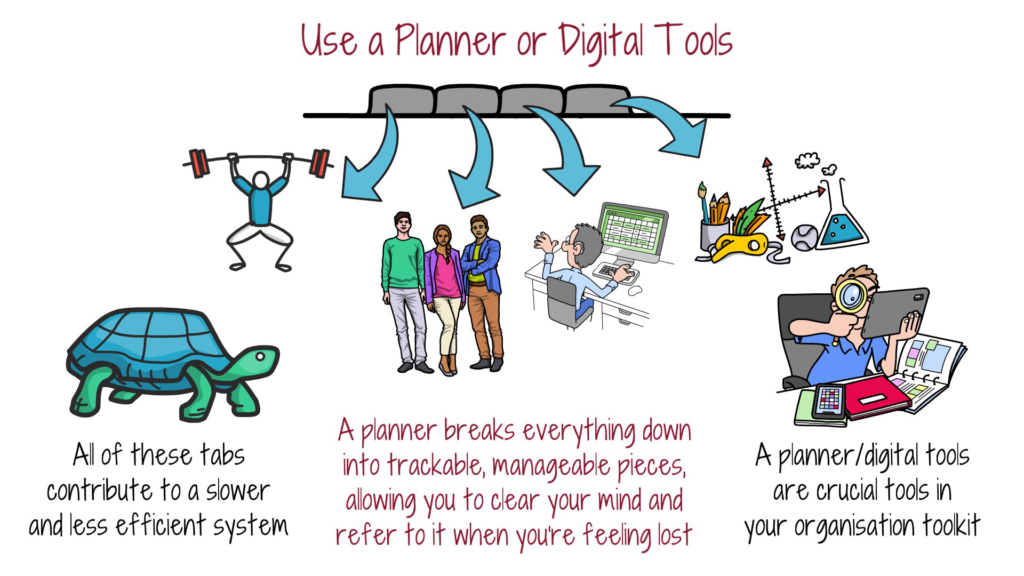
A planner helps condense all of the above into trackable and digestible pieces of information, meaning you can close some of the tabs in your head and look to your planner when you feel lost. This will help you keep track of appointments, tasks, and deadlines.
Sunday Night Weekly Review
So far, we’ve touched on how by looking forward, you can take action now to protect your future self. Indeed, that is a large part of feeling organised. However, don’t neglect your recent history either. A weekly review session to reflect on the past week’s accomplishments and challenges helps you see what worked and what went wrong, putting you in a stronger position for the week ahead.
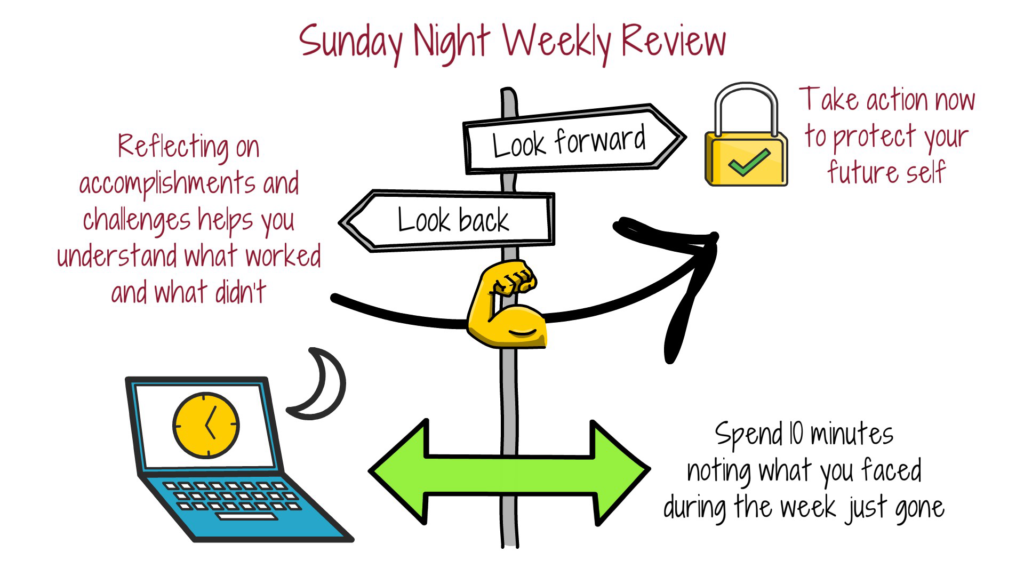
Spend 10 minutes every Sunday noting what you faced during the week just gone. The format doesn’t matter – it’s the reflection period that counts.
Remember, sometimes you need to go back to move forward.
Time Blocking
As we earlier, a lack of organisation can often feel like having too many open tabs in your head. All of them require some level of energy to maintain, but this mentality means it’s very difficult to give 100% to a singular activity. A lack of organisation often consists of dipping your toes into multiple tasks, not giving them enough attention and thus maintaining a certain level of mess.
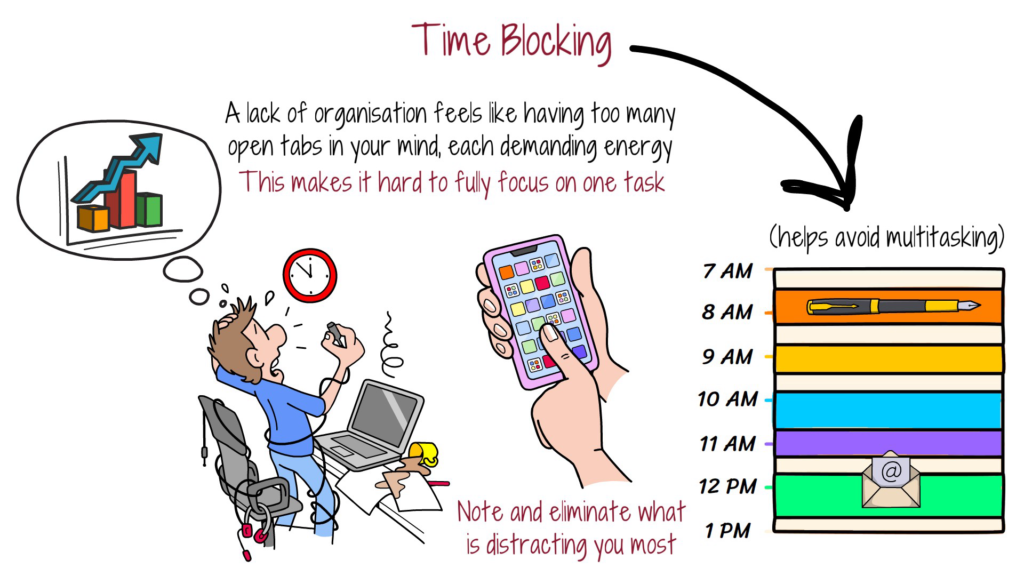
To cut out that mess, implement time-blocking into your life. Time-blocking is exactly what you think – allocating a set period to focus on one task, such as writing an article, doing the dishes or responding to emails. Focusing on one thing at a time helps avoid multitasking – which the human brain finds next to impossible anyway – and puts your organisational skills on the front foot.
It’s important to remember the world you live in has not been designed for a singular, driven focus. Every app has a notification, most of which prey on the instant gratification that comes with responding every time your phone flashes. Even the news apps want you to click! So cut yourself some slack but also note down and eliminate what is distracting you most.
Set Realistic Goals and Expectations
Ever heard of the phrase “shoot for the stars and settle for the moon”? It may sound slightly cynical, but there’s solid reasoning there. Although the stars are shiny, they are so far away – too far for anyone to reach. We can get to the moon, however, and the moon isn’t half bad.
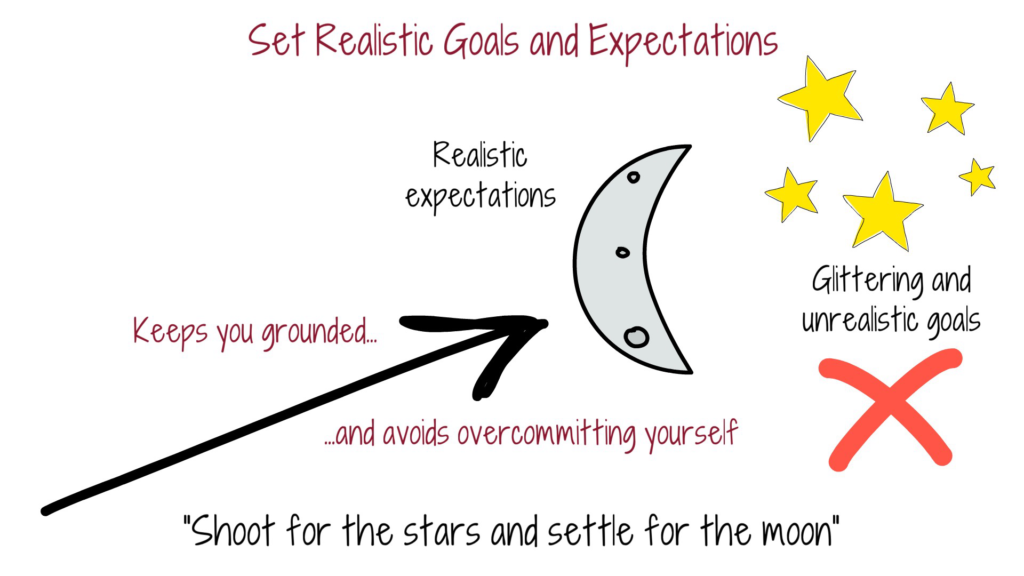
It’s all about perspective. When your goals and expectations are glittering and unrealistic, not achieving them can feel demoralising. In fact, because of their stature, you’re at risk of perpetually feeling distanced from yourself.
Setting realistic expectations helps keep you grounded and avoids overcommitting yourself. A continued sense of achievement provides the vital energy needed for maintaining an organised life.
Limit Time-Wasting Activities
Let’s be honest, our lives are filled with time-wasting activities. Phrases such as “doom-scrolling” (going through the endless stream of content on social media apps) have become prevalent in today’s language – and with good reason. With so much information available at our fingertips, the itch to know and learn more is never fully scratched as there will always be something else to consume. Put it this way – waiting for something isn’t just waiting anymore. Instead, it’s time to scroll through our phones, scanning and searching for more each time.
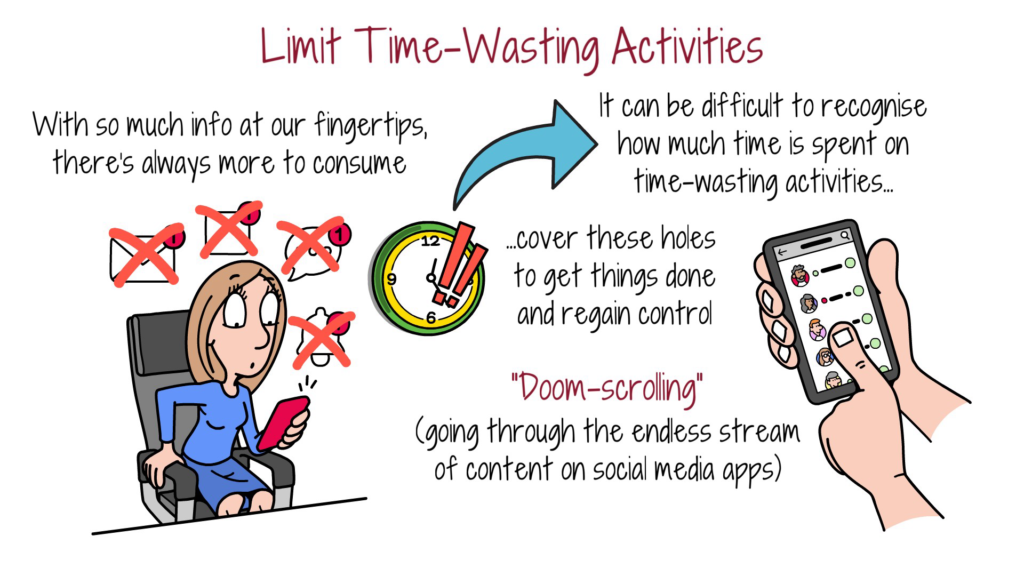
It can be difficult to acknowledge the time spent on time-wasting activities. After all, how productive you are is often seen as an indicator of how valuable you are. While that most certainly isn’t the case, continued abuse of time-wasting activities is a slippery slope and will leave your life feeling messy and disorganised. Covering these gaping holes in your time will allow you to get things done and put you back in the driver’s seat.
Delegate When Possible
While social media and the time-wasting activities this article has mentioned are things to consider cutting down on, technology does have many uses, particularly when it comes to organisation.
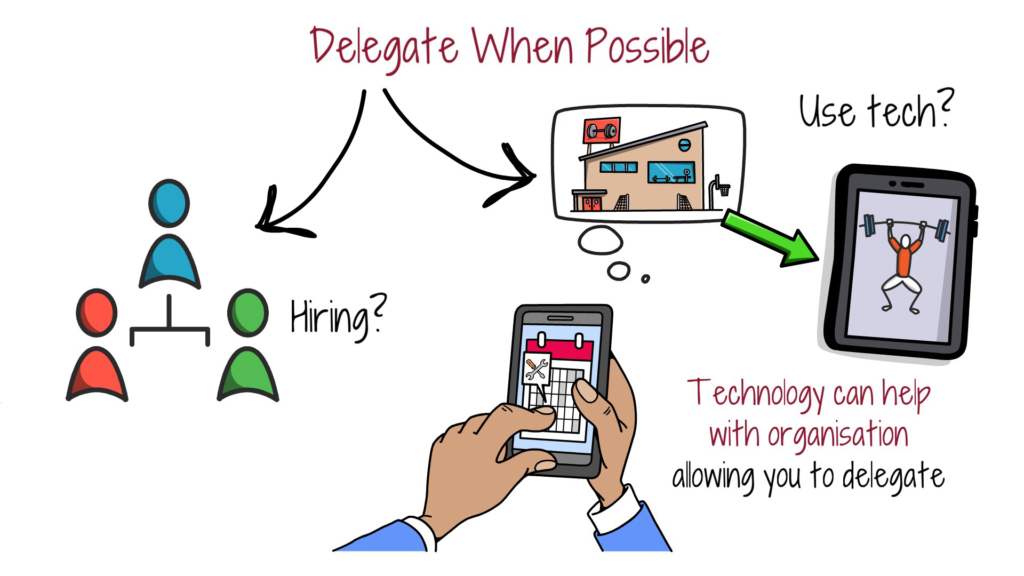
To free up time for more critical responsibilities, delegate when possible. That may sound like hiring an assistant, but there are so many apps available which provide a similar service. For example, if you wanted to spend less time thinking about exercise, you could join a purpose-made app which generates workouts for you.
Finding simple but effective tricks like this is organisation manifesting in your daily life. Essentially, when you take action to free up time and get on top of everything going on, you’re becoming more organised.
Organise Your Life for a More Seamless Existence
Organisation looks different for everyone. Some people may thrive where you don’t, so make sure you’re paying attention to yourself above all else. The tips discussed in this article are starting points. Take what you think suits you best and put your spin on it; the more comforting you find the organisation processes, the easier they will be to maintain for a long time. In that lies the key to it all – if you want to feel like an organised person, you must consistently implement the frameworks and tools necessary. It can start now, but it won’t happen overnight. Habits take time to form, but happily, an organised individual treasures their time.
